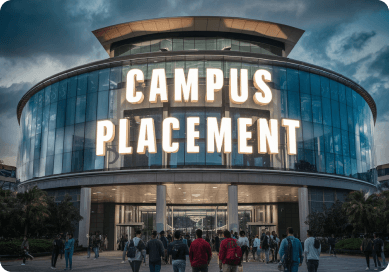Enter OTP



Greifswald, Germany

Greifswald, Germany

Cost Of Living

Undergraduate Fees International Students

Post Graduate Fees International Students

A historic institution with modern research excellence, blending traditional humanities with cutting-edge fields like plasma physics and marine microbiology. Hosts Germany’s Helmholtz Institute for Infection Research, and is renowned for life sciences, Baltic Sea research, and fusion partnerships (Wendelstein 7‑X, Max‑Planck IPP)
A preeminent figure of German Romantic painting known for evocative landscape art like “Wanderer above the Sea of Fog"... View More
A preeminent figure of German Romantic painting known for evocative landscape art like “Wanderer above the Sea of Fog". View Less
Member of the German Bundestag (CDU), studied law and political science at Greifswald from 2012–2017 .
Innovative German surgeon renowned for pioneering the use of negative-pressure surgical chambers.
“Turnvater Jahn,” founder of the German gymnastics movement and a nationalist educator.
Influential evolutionary biologist credited with modernizing evolutionary theory; earned recognition among the universit... View More
Influential evolutionary biologist credited with modernizing evolutionary theory; earned recognition among the university’s top alumni . View Less
First Minister‑President of Mecklenburg‑Vorpommern and long-serving Member of the European Parliament.
Pioneering diabetologist and former professor at Greifswald; established Germany’s first clinical care center for diab... View More
Pioneering diabetologist and former professor at Greifswald; established Germany’s first clinical care center for diabetes patients on Rügen Island. View Less
Greifswald’s campus strikes a harmonious balance between classical academic architecture and contemporary functional design. The historic campus lies in the medieval city centre, featuring iconic red-brick buildings such as the Rubenow Monument and Oberes Hörsaalgebäude. The Beitzplatz Science Campus, developed post-reunification, houses modern research facilities, lecture halls, the central library, and the university hospital. Additional sites include the Soldmannstraße and Loefflerstraße campuses, which host departmental libraries and cutting-edge laboratories for STEM and biomedical disciplines. Public green spaces, bike-friendly pathways, and accessible pedestrian zones seamlessly integrate the university’s facilities into the urban fabric.
Boasting a vibrant student culture, Greifswald is home to numerous societies and initiatives. The Hochschulsport offers over 60 sport activities—including sailing, surfing, dragon boat, judo, and yoga—supported by both on-campus and city-wide facilities like pools and fitness centers. Cultural societies abound: student-run venues (e.g., Mensaclub, Geologenkeller), film clubs, and the moritz-Magazin, along with radio98eins and moritzTV. Popular annual events include the Nordischer Klang Festival and PolenmARkT, showcasing Nordic and Polish culture respectively.


The Career Service at Greifswald offers extensive career counseling, workshops (CV writing, interviewing), job fairs, and employer networking events . They also facilitate internships and maintain an active alumni network to help current students connect with professionals . Partnerships with regional industries in life sciences, energy, and healthcare provide access to placements and future employment opportunities .
The below information is required while
completing the university application :
Key Requirements:
University Entrance Qualification: Equivalent to the German Abitur. Applicants must verify eligibility via ANABIN, DAAD, or uni?assist? .
Language Proficiency:
German: Required for most programs; accepted tests include DSH Level 3, TestDaF Level 5, or Goethe-Zertifikat C2? .
English: Required for English-taught programs, if applicable.
Additional Program-Specific Requirements:
Medicine and Dentistry students must meet state examination regulations, and these highly selective programs include institutional admissions processes (e.g., zVS quotas and university-run selection procedures; Ministery-run plus Uni-specific slots)? .
Other programs may require subject-specific exams (e.g., Feststellungsprüfung or aptitude assessments).
Application Process:
Apply through uni?assist (for most international applications).
Submit:
Certified academic transcripts and diplomas.
Proof of language skills.
Record of grading system explained in English/German.
CV/resume and potentially motivation letter, depending on the program?.
Know moreOffers robust career services, with employer engagement, “children’s university”, and student-led Hochschulsport including sailing, golf, and martial arts . Strong academic support from faculties, IT, library systems, sports, and student associations like AStA and StuPa.



Ranked 401–500 globally in Times Higher Education 2024, and 37–41st in Germany. Produced 2 Nobel laureates: Johannes Stark (Physics, 1919) and Gerhard Domagk (Medicine, 1939) . The university boasts early adoption of English instruction (1777) and prestigious restorations totaling €417 million since reunification.


Hosted the Hans-Werner Osthoff Prize ceremony, awarding Dr. Eve Stenson for work in matter–antimatter plasma—underscoring Greifswald’s importance in plasma research.
Hosts the prestigious Krupp Kolleg, supporting interdisciplinary research through fellowships for junior and senior scholars .
Over €417 million was invested to renovate historic buildings and build modern facilities in sciences, medicine, IT, and mathematics.
Became one of Germany’s earliest institutions to offer instruction in English, demonstrating an early international outlook.
Established one of the world’s oldest academic botanic gardens, now spanning 9 hectares and supporting research & teaching in medicinal and plant systematics.
Duke Bogislaw XIV granted the Eldena district farmland to ensure the university’s financial independence until the 19th century.
Greifswald established Germany’s first centralised university library, consolidating collection and lending services under one roof .
Officially established by papal approval and civic support, it is one of the oldest universities in Europe and the fourth oldest in modern Germany.
Hosts Helmholtz Institute for Infection Research, funded with €58 million, enhancing molecular infection research. Collaborates with Max‑Planck IPP and DFG to support fusion and plasma research, including Wendelstein 7‑X .
Excels in life sciences, geography, plasma physics, environmental studies, and Baltic Sea research.
Home to Alfried Krupp Kolleg, hosting junior and senior fellowships for advanced interdisciplinary research . Houses field stations (Hiddensee) and extensive museum collections aiding research in botany, archaeology, medicine, and physics
This innovation presents a method and apparatus to deform drops or cells under controlled conditions, enabling precise measurement of their mechanical properties. It’s applicable in studies of cell mechanics, droplet behavior, and soft matter physics.
Developed in collaboration with external research entities, this device generates and measures magnetostatic spin waves (magnons) in ferromagnetic materials. It’s aimed at advancing magnonics—used in next-gen computing, sensors, and signal processing.
Created by University professor Christian Ehrenfried von Weigel, this counter-current cooling system laid groundwork for the Liebig condenser—a core component in modern chemistry labs for efficient distillation and heat exchange.











Embark on your educational journey with confidence! Our team of admission experts is here to guide you through the process. Book a free session now to receive personalized advice, assistance with applications, and insights into your dream school. Whether you're applying to college, graduate school, or specialized programs, we're here to help you succeed.
